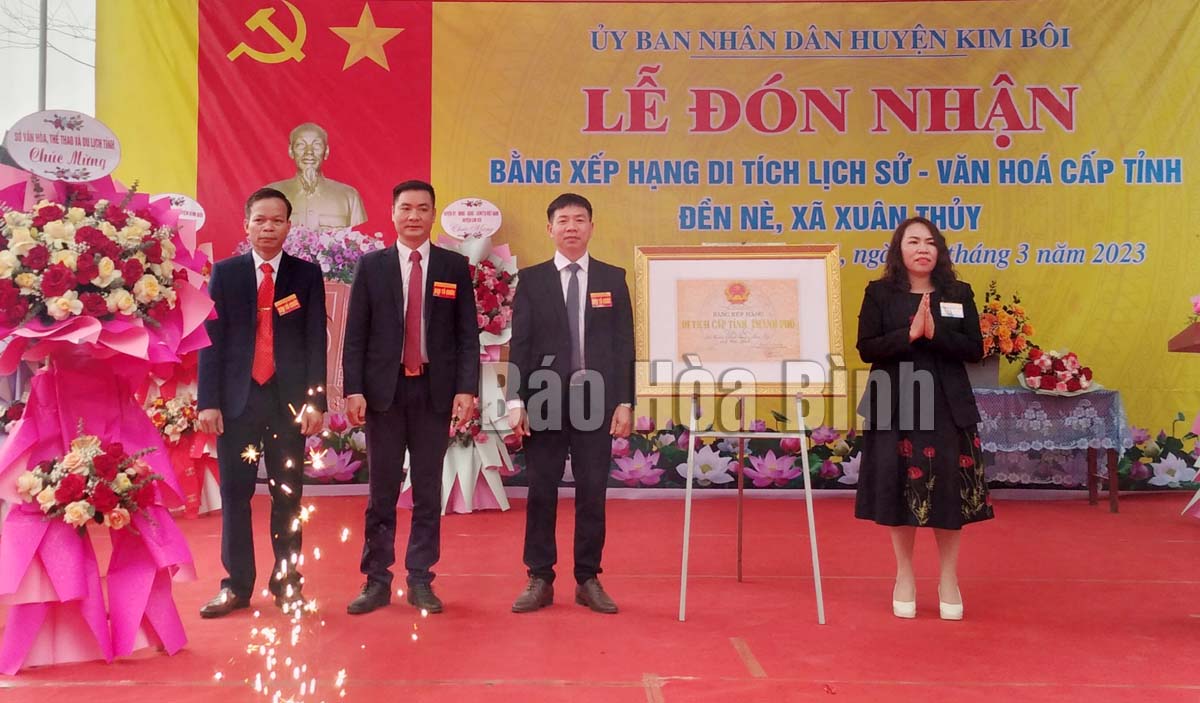



The leaders from the Department of Culture, Sports and Tourism were awarding the certificate of ranking the historical - cultural relic at the provincial level of Ne Temple in Xuan Thuy commune (Kim Boi) to the Party Committee and the local authorities.
Ne temple is located in Bo Ne hamlet, Xuan Thuy commune. This is a temple with a long history of formation and development. Over the time, the old temple no longer exited. With the efforts of the local government and people, in 2015, the temple was restored as it is today. Along with that, the fesstival of Ne temple has been restored, demonstrating the cultural values of Muong ethnic group in Kim Boi district.
Ne Temple is the place to worship Son Than Princess (the nickname was Quach Thi Gioi, also known as Ba Chua Doi Ne). She was the third daughter of King Quach Nhan Tho - the 13th generation of Le dynasty. At present, Ne Temple still preserves 2 ordinations (the original) and 1 copy of Ngoc Pha "Ha Bi xa Liet Vi Than Tich”. Every year, on the 7th day of the first lunar month, a lot of the local people come to Ne temple to worship with the respect, gratitude and prayer to wish for a peaceful and prosperous new year. This is also an opportunity to educate the next generations to always remember the merits of Ba Chua Doi Ne.
At the ceremony to receive the certificate of ranking the historical - cultural relic of Ne Temple at the provincial level, the leaders from Kim Boi District People's Committee affirmed: This is an important and meaningful cultural event, creating a great source of encouragement for the officials and the people of all ethnic groups in the district in general and Xuan Thuy commune in particular. Ne Temple relic is located in the system of relics and scenic spots of Kim Boi district, having many favorable conditions for tourism development. In the future, Ne temple relic will combine with the other relics in the district to create the routes for the spiritual - ecological - archaeological - village tourism. Ne Temple will be the spiritual destination of many tourists from every part of the country, creating more resources for the local socio-economic development.